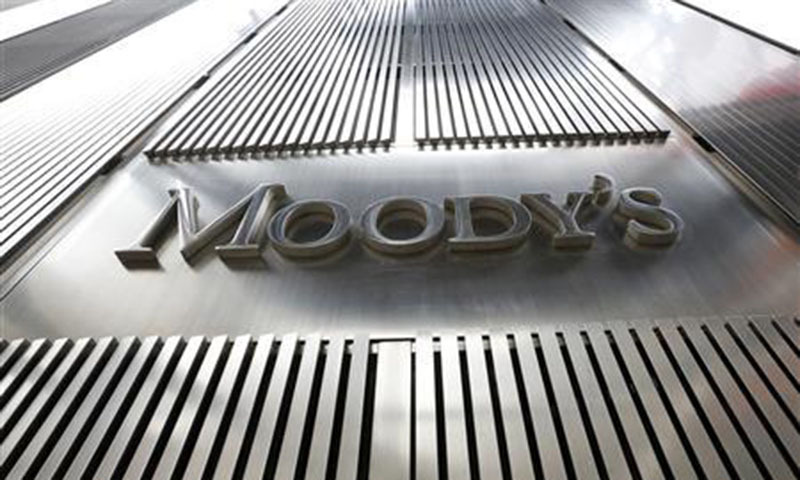KARACHI: Pakistan’s ‘Caa1’ government bond rating with a negative outlook reflected its “very low institutional and fiscal strength, its weakened external position and large government financing needs”, stated Moody’s Investors Service in its review on the ‘Credit Analysis on Government of Pakistan’.
The statement released from Singapore on Tuesday was feverishly debated here in the city, though some economists and analysts interpreted it as a caution that the rating may be nearing a “tipping point”.
Anushka Shah, analyst at Sovereign Risk Group Moody’s Investors Service Singapore, who released the report, presented both sides of the Pakistan case going forward: “Apart from the successful implementation of structural policy reforms, other key triggers for an upward revision in the rating include improvements in domestic and regional political stability and a sustained build-up in external liquidity.”
Yet she put a caveat: “A combination of some other factors will prompt a further downgrade. These factors include a substantial worsening of the domestic political environment and significant further deterioration in the policy framework and investor confidence. A relapse in which official foreign-exchange reserves decline again would be credit negative as it would materially increase the probability of default.”
The report elaborated on Pakistan’s credit profile in terms of economic strength, institutional strength, fiscal strength and susceptibility to event risk, which the international credit rating agency noted, were the four main analytic factors in Moody’s Sovereign Bond Rating Methodology.
Moody’s acknowledged that in recent months Pakistan had made progress under the Extended Fund Facility (EFF) agreement which it signed with the International Monetary Fund (IMF) in July 2013.
Under the agreement, Pakistan envisaged implementing reforms in the energy sector, improving tax administration, and privatising some of its public enterprises.
“A successful completion of the challenging programme of reform would address constraints on economic growth and reduce fiscal imbalances, thus improving the sovereign’s credit profile,” analyst Anushka Shah wrote in her report.
IMF programme disbursements, coupled with a recent sovereign bond issuance and the receipt of grants, had also helped to reverse the decline in official foreign exchange reserves, bolstering thinned external buffers and reducing to some degree vulnerability to a sudden stop in capital inflows, the analysts said.
However, Moody’s believed that in the near term, large fiscal imbalances and debt structure weaknesses, coupled with a narrow tax base and heavy reliance on the banking system for deficit financing would remain credit constraints.












































